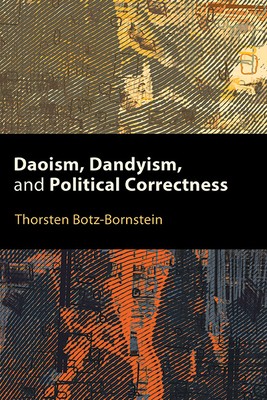
- We will send in 10–14 business days.
- Author: Thorsten Botz-Bornstein
- Publisher: State University of New York Press
- ISBN-10: 1438494521
- ISBN-13: 9781438494524
- Format: 15.2 x 22.9 x 1.8 cm, kieti viršeliai
- Language: English
- SAVE -10% with code: EXTRA
Daoism, Dandyism, and Political Correctness (e-book) (used book) | bookbook.eu
Reviews
Description
How would Zhuangzi, a Chinese philosopher who lived in the fourth century BCE, have reacted to the recent linguistic reforms commonly referred to as "political correctness"? Zhuangzi was a language skeptic, which means that he did not believe that language could convey the true meanings of the world. Might Zhuangzi have argued that political correctness creates but a dream world made of rules, policies, and words--no more real than when he "dreamt he was a butterfly"? Written in a provocative tone, this book looks at political correctness through the lens of ancient Chinese philosophy, as well as through Brummell's and Wilde's aesthetic philosophy of dandyism. Several scholars have established links between Zhuangzi and dandyism, and Wilde wrote one of the first reviews of Herbert Giles's English translation of the Zhuangzi. Like Daoism, dandyism does not engage in a Confucian "correction" of language, instead preferring aimless roaming and rambling. The Daoist "carefree wanderer" is a flâneur, and both Daoist and dandy deconstruct the puritanism and correctness sought by Confucianism, Victorianism, and our contemporary neoliberal culture. Instead of seeking to induce correct opinions, they seek to liberate the mind.
EXTRA 10 % discount with code: EXTRA
The promotion ends in 22d.07:01:50
The discount code is valid when purchasing from 10 €. Discounts do not stack.
- Author: Thorsten Botz-Bornstein
- Publisher: State University of New York Press
- ISBN-10: 1438494521
- ISBN-13: 9781438494524
- Format: 15.2 x 22.9 x 1.8 cm, kieti viršeliai
- Language: English English
How would Zhuangzi, a Chinese philosopher who lived in the fourth century BCE, have reacted to the recent linguistic reforms commonly referred to as "political correctness"? Zhuangzi was a language skeptic, which means that he did not believe that language could convey the true meanings of the world. Might Zhuangzi have argued that political correctness creates but a dream world made of rules, policies, and words--no more real than when he "dreamt he was a butterfly"? Written in a provocative tone, this book looks at political correctness through the lens of ancient Chinese philosophy, as well as through Brummell's and Wilde's aesthetic philosophy of dandyism. Several scholars have established links between Zhuangzi and dandyism, and Wilde wrote one of the first reviews of Herbert Giles's English translation of the Zhuangzi. Like Daoism, dandyism does not engage in a Confucian "correction" of language, instead preferring aimless roaming and rambling. The Daoist "carefree wanderer" is a flâneur, and both Daoist and dandy deconstruct the puritanism and correctness sought by Confucianism, Victorianism, and our contemporary neoliberal culture. Instead of seeking to induce correct opinions, they seek to liberate the mind.


Reviews